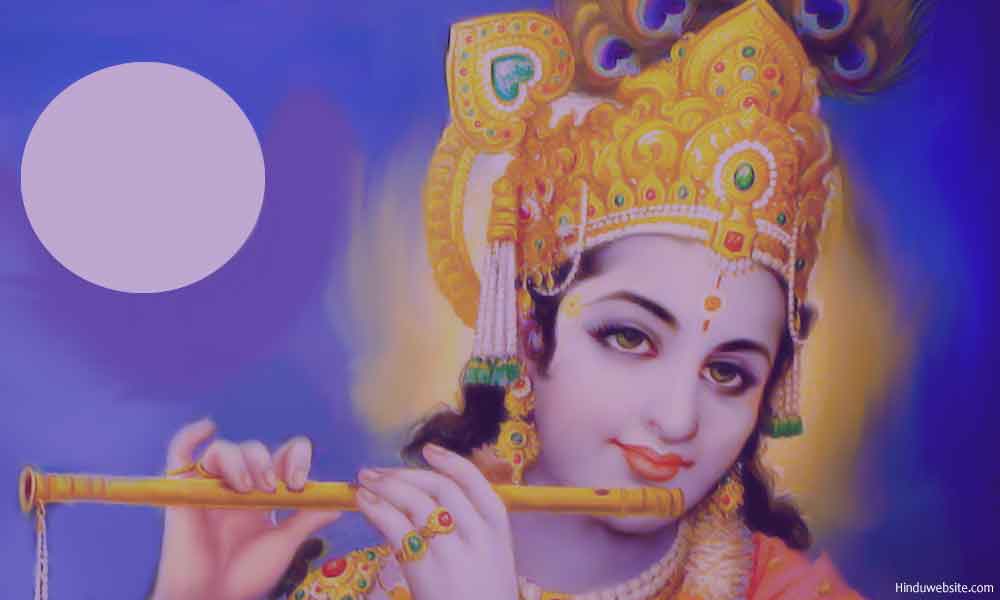
The Bhagavadgita on Who is a True Yogi

Chatper 12 Sloka 15
yasmān nodvijate loko lokān nodvijate ca yah
harsāmarsabhayodvegair mukto yah sa ca me priyah
Translation
yasmat = by whom; na = not; udvijate = disturbed; lokah = the world; lokat = by the world; na = not; udvijate = disturbed; ca = and; yah = he who is; harsa = joy; amarsa = impatience; bhaya = fear; udvegaih = distress; muktah = freed; yah = who; sah = he; ca = also; me = Mine; priyah = very dear.
Meaning
"By whom the world is not disturbed and he who is not disturbed by the world, who is free from joy, impatience, fear and distress, he is also dear to Me.
Commentary
By whom the world is not disturbed: Humankind has shed more blood in the name of God and religion than any other cause. Human history is replete with the names of fanatics and religious bigots who perpetrated gruesome crimes upon people proclaiming themselves as defenders of faith. In every continent and every country and in every age, blood has been shed in the name of religion. People were impaled, buried, burned, butchered, beheaded, sold into slavery, raped and humiliated, hung on the crosses and on the trees in the name of faith.
The people who indulged in such heinous acts were the very personification of evil, which the followers of God irrespective of their religion were expected to shun in their quest for liberation or eternal life. There is no virtue in being hateful towards others even if it is for a religious or a moral cause. It is our obligatory duty to practice our respective faiths, but we have no right to interfere with the beliefs of others or disturb them simply because they do not agree with us. You may impart religious knowledge to those who are willing to learn; but you have no right to coerce those who do not agree with your beliefs.
The source of all religions and faiths is the eternal Brahman. He alone knows what is right for us and what we may need to do to become free from the cycle of births and deaths. It is not for us to hate others because they differ from us in their appearance, habits or beliefs. It is ignorance and delusion to indulge in self-destructive acts of hatred and violence as a service to God.
The very essence of Brahmn is infinite love and compassion. Why would He want people to quarrel among themselves and destroy each other to promote or perpetuate their beliefs? Krishna made it clear in this verse that He would love those who would not disturb the world or be disturbed by it. He also made it clear previously that His devotee should be free from hatred and ill will. One cannot know God with an impure heart that is filled with hatred and malice.
A devotee of God should have no enemies and no negativity towards others. From these words of Krishna, it is very clear that God does not favor those who disturb the world or the people with their thoughts and actions. Fanaticism and fundamentalism are the prime sources of disturbances in the world. Therefore they would not endear anyone to Him. Those who hate others or their beliefs out of ignorance and egoism ought to pay attention to these words of Krishna and understand why it is important for each of us to maintain peace within the world and us.
Who is free from joy, impatience, fear and distress: A true yogi or devotee lives upon earth as if he does not exist or does not matter. He neither disturbs the world nor is disturbed by it. Self-giving and unassuming, he neither claims self-importance nor indulges in any actions that would disturb other people or their lives. He lives without judgment in devotion to God. He may help others, without expectation. He may even teach others religious knowledge out of compassion and love; but he would not do anything that would put them in harm’s way. Further, as he cultivates equanimity and sameness towards the pairs of opposites, he remains impervious to both positive and negative emotions and situations. In other words, whatever may be the circumstances, he would remain equal and undisturbed.
Suggestions for Further Reading
- Om, Aum, Pranava or Nada in Mantra and Yoga Traditions
- Brahmacharya or Celibacy in Hinduism
- Atheism and Materialism in Ancient India
- Solving the Hindu Caste System
- How To Choose Your Spiritual Guru?
- Creation in Hinduism As a Transformative Evolutionary Process
- Wealth and Duty in Hinduism
- Do You Have Any Plans For Your Rebirth or Reincarnation?
- Understanding Death and Impermanence
- Lessons from the Dance of Kali, the Mother Nature
- Letting your God live in You - The True Essence of the Hindu Way of Life
- prajnanam brahma - Brahman is Intelligence
- Maslow's Hierarchy Of Needs From The Perspective Of Hinduism
- The Defintion and Concept of Maya in Hinduism
- The Meaning of Nirvana
- Self-knowledge, Difficulties in Knowing Yourself
- Hinduism - Sex and Gurus
- The Construction of Hinduism
- The Meaning and Significance of Heart in Hinduism
- The Origin and Significance of the Epic Mahabharata
- The True Meaning of Prakriti in Hinduism
- Three Myths about Hinduism
- What is Your Notion of God?
- Why Hinduism is a Preferred Choice for Educated Hindus
- Essays On Dharma
- Esoteric Mystic Hinduism
- Introduction to Hinduism
- Hindu Way of Life
- Essays On Karma
- Hindu Rites and Rituals
- The Origin of The Sanskrit Language
- Symbolism in Hinduism
- Essays on The Upanishads
- Concepts of Hinduism
- Essays on Atman
- Hindu Festivals
- Spiritual Practice
- Right Living
- Yoga of Sorrow
- Happiness
- Mental Health
- Concepts of Buddhism
- General Essays